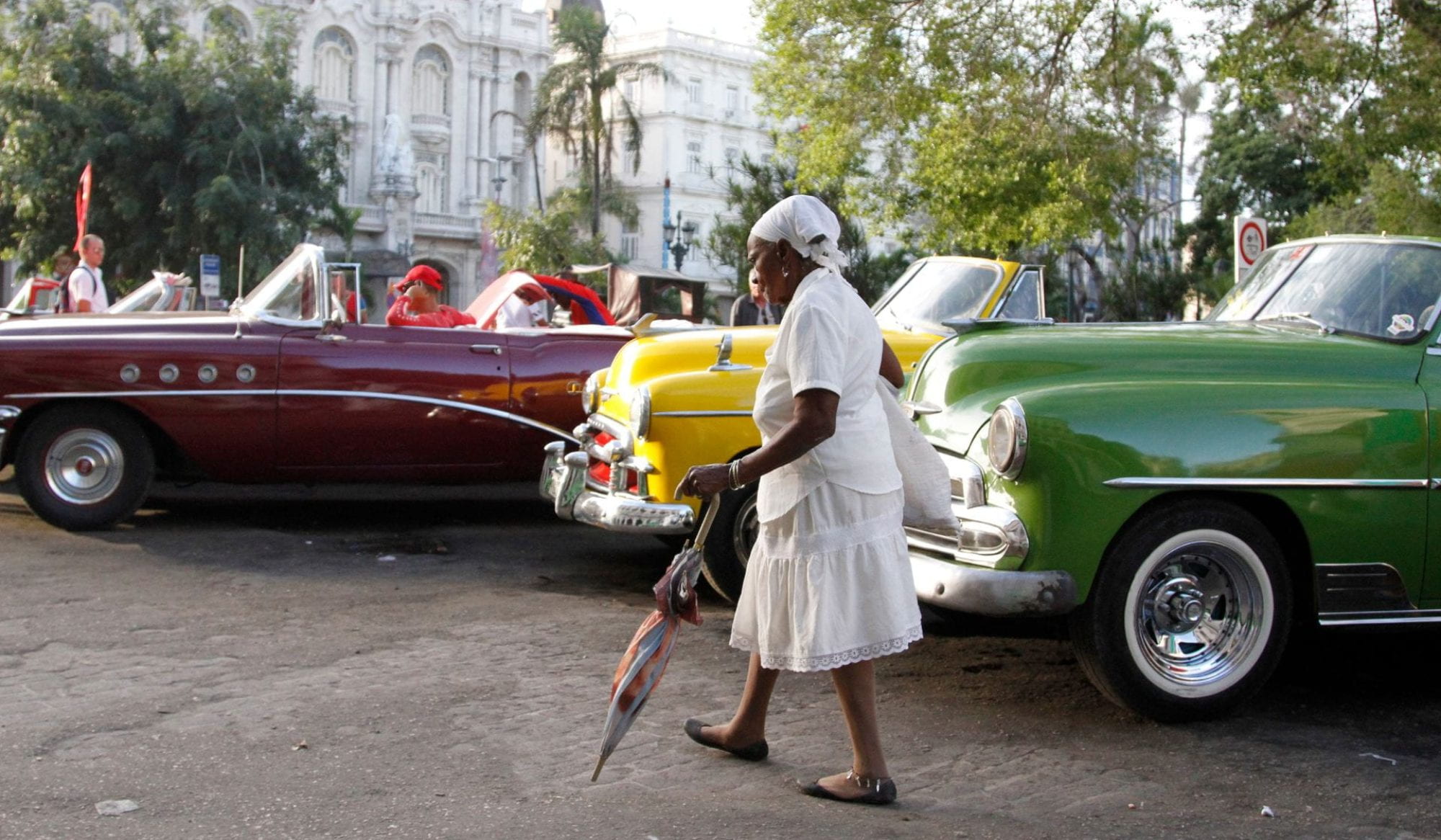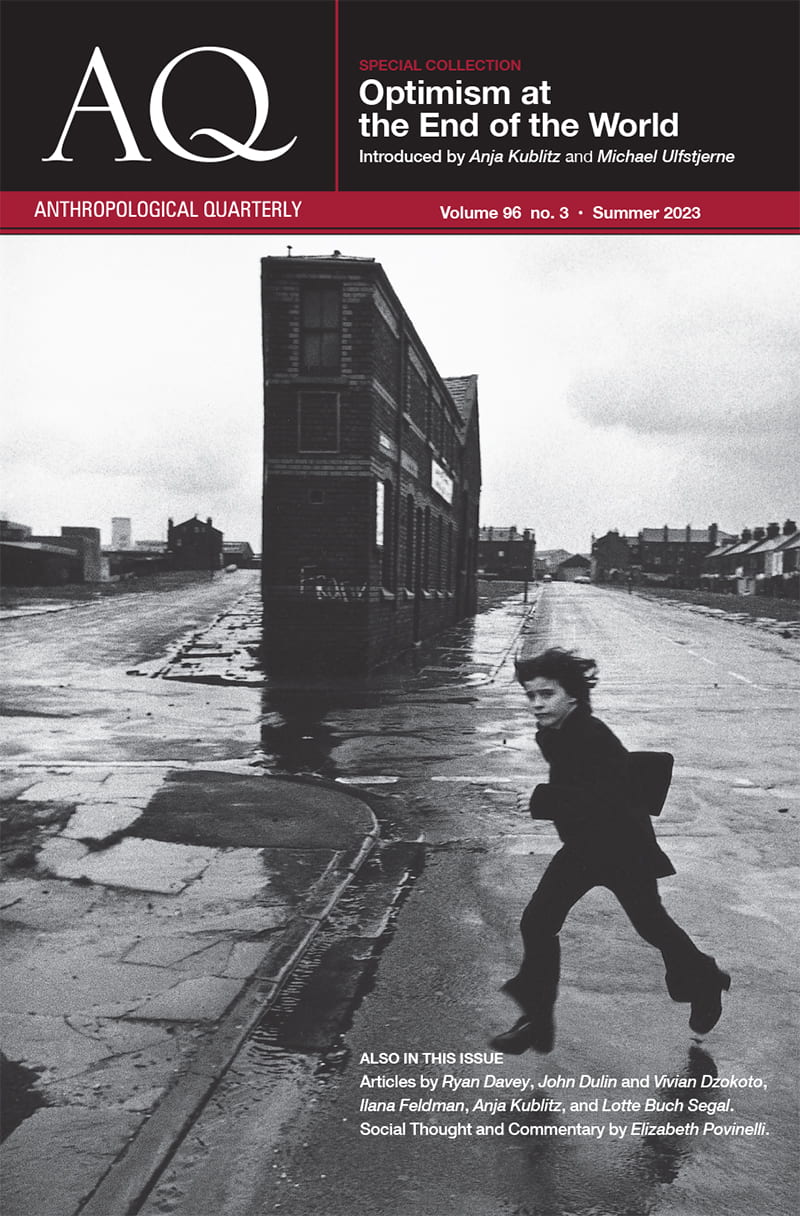
TABLE OF CONTENTS
Vol. 96, No. 3
SPECIAL COLLECTION
OPTIMISM AT THE END OF THE WORLD
INTRODUCTION
Anja Kublitz and Michael Ulfstjerne | Optimism at the End of the World
ARTICLES
Ryan Davey | Defensive Optimism: Parental Aspirations and the Prospect of State-Enforced Child Removal in Britain
Lotte Buch Segal | Caring for the Ordinary in Palestine: When Ongoing Occupation Becomes Maddening
Ilana Feldman | Untimely Optimism: International Attention, Palestinian Disappointment, and the Persistence of Commitment
John Dulin and Vivian Dzokoto | “Like it’s Already Done”: Spiritual Experience, Hope, and Optimism in Southern Ghana
Anja Kublitz | Optimism at the End of Time: Jihadists’ Struggles
SOCIAL THOUGHT & COMMENTARY
Elizabeth Povinelli | Affects After Finitude
POLYGLOT PERSPECTIVES
Ognjen Kojanić | On Redefining Boundaries and Opening New Terrains in a Peripheral Anthropological Tradition
BOOK REVIEWS

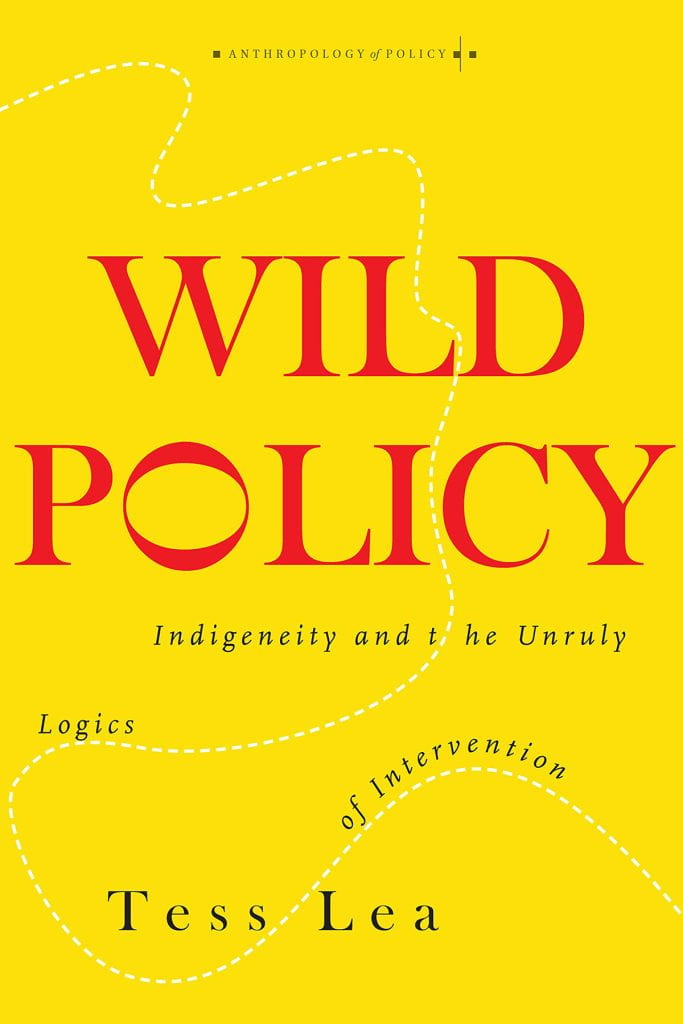
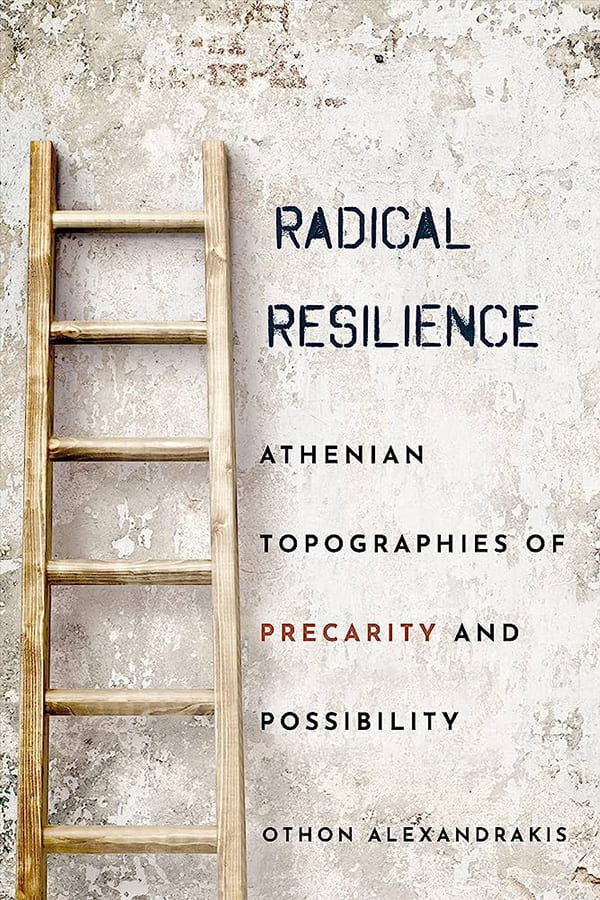
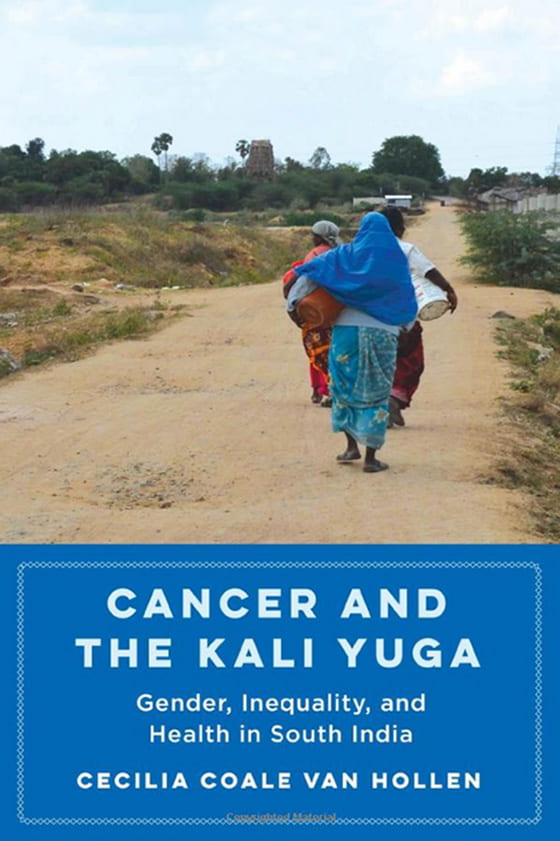
Carolina Fuentes | Nicole Coffey Kellett and Graciela Orihuela Rocha’s Graciela: One Woman’s Story of War, Survival, and Perseverance in the Peruvian Andes
Eduardo Hazera | Tess Lea’s Wild Policy: Indigeneity and the Unruly Logics
of Intervention
George Mantzios, PhD | Othon Alexandrakis’s Radical Resilience: Athenian Topographies of Precarity and Possibility
Nikhil Pandhi | Cecilia Coale Van Hollen’s Cancer and the Kali Yuga: Gender, Inequality, and Health in South India
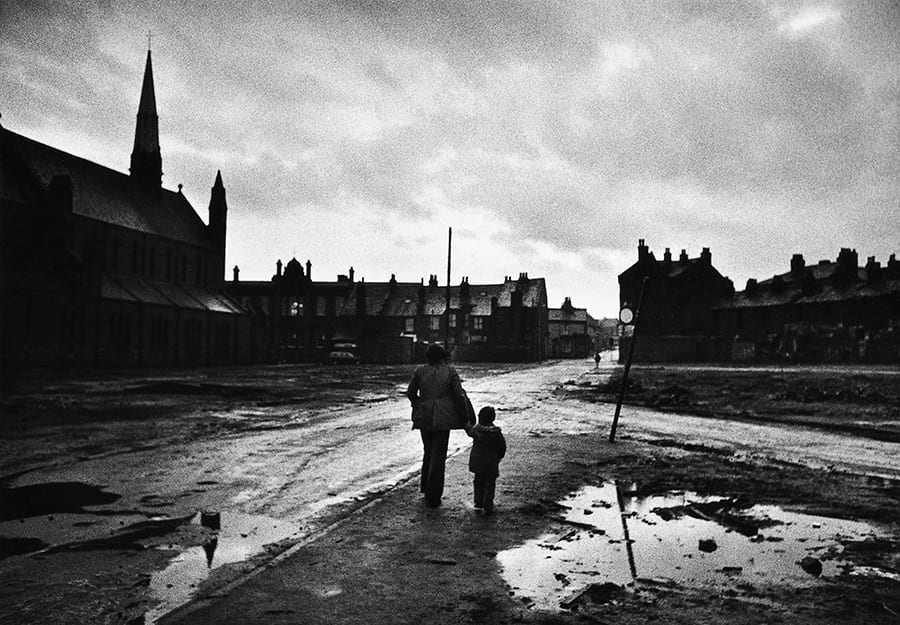
© 2007 Don McCullin (Contact Press Images)
ABSTRACTS
Defensive Optimism: Parental Aspirations and the Prospect of State-Enforced Child Removal in Britain
Ryan Davey, Cardiff University
In 2010s Britain, expectations for parents living on low incomes to pursue aspirations for their children’s upward social mobility converged with a concentration of forcible child protection interventions in so-called “deprived” neighborhoods. This article explores the subjectivities of parents, mainly women, living on one such housing estate [housing project] in England by critically engaging Berlant’s theories of optimism and intimacy. The overtly aspirational practices by which parents there sought better lives for their children are inseparable from those parents’ attempts to dispel their fears of their children being removed. While the immediate prospect of child removal provoked one woman to forego an express will to retain custody, the remoter possibility of the same event incited others to comply with parental norms to which they did not subscribe or to reaffirm their existing parental aspirations ever more vocally. Conceptually the article argues that optimism can sometimes be defensive rather than aspirational, especially in the face of lawful expropriations, and that these two forms of optimism—aspirational and defensive—may interact with and reinforce one another. The article extends Berlant’s analysis by showing the involvement of coercive legal force in the processes by which people cling onto hopes that wear them down. When faced with the possible expropriation of the object of an intimate attachment, people’s attempts to hold onto that object may also involve reasserting the aspirations which the attachment makes possible. This suggests that research into optimism, aspirations and ethical self-formation has much to gain from careful attention to people’s mundane expectations of violence and loss. [Keywords: parenthood, optimism, aspiration, defensive, legal coercion, child removal, child protection, social work]
Caring for the Ordinary in Palestine: When Ongoing Occupation Becomes Maddening
Lotte Buch Segal, The University of Edinburgh
This article offers a reading of contemporary life in Palestine that interrogates the braiding of hope and despair through an examination of expressions of optimism and madness in Palestinian everyday life. Whereas I neither aim to define what madness nor optimism could be taken to mean, I examine vernacular notions of how, when, and why the notion of madness is used in ordinary language, anchored in ethnographic fieldwork in occupied Palestine as well as conversations with Palestinian interlocutors over the last sixteen years. The aim being to explore the experiential and linguistic abyss between a collective feeling of Israel’s occupation as a maddening force and, on the other hand, the accompanying call on part of the Palestinians to act as if it was not, the will to endure and resist being unwavering. Ultimately, I pursue the argument that the chasm between these two different pressures causes a feeling of skepticism due to the braided struggle of finding a language that can both acknowledge the occurrence of mental disorder as a consequence of the military occupation simultaneously as Palestinians carve out a space to sustain an ordinary in the wake of maddening oppression. Concludingly, I argue that gender is at the heart of how we might understand, even locate the refusal to end in Palestine—the maddening consequences intrinsic to such a refusal being the locus of my inquiry. [Keywords: madness, Palestine, endurance, skepticism, care, ethics, ordinary]
Untimely Optimism: International Attention, Palestinian Disappointment, and the Persistence of Commitment
Ilana Feldman, George Washington University
This article considers the simultaneous experience and expression of disappointment and belief, and of exhaustion and commitment, in Palestinian engagement with the international community and international institutions in the years since 1948. This problem is not just a Palestinian one. Drawing from archival and ethnographic research on Palestine conducted over, and about, many years and locations, the article proposes untimely optimism as a concept to elucidate how people can sustain commitments to institutions whose failures they know well. The concept also reveals what may be accomplished through maintaining such commitment, even within a general context of failure and betrayal. Untimeliness does not always generate optimism—it frequently does not—but it may nonetheless be a prerequisite for optimism “at the end of the world.” [Keywords: Palestinians, international institutions, optimism, untimeliness, refugee return]
“Like it’s Already Done”: Spiritual Experience, Hope, and Optimism in Southern Ghana
John Dulin, Utah Valley University
Vivian Dzokoto, Virginia Commonwealth University
This article examines the intersection of optimism and religion by exploring the spiritual experiences of Pentecostal Christians and Traditionalists in Cape Coast, Ghana. We argue that for both Pentecostals and Traditionalists (practitioners of indigenous Akan religion) an experience of contact with the spirit realm conditions movements between pessimistic and hopeful subjectivities. When the object of hope is definite, but uncertain, Pentecostal spiritual experiences are similar to those of traditionalists. Pentecostalism stands out as unique from traditionalist experience and practice because it also provokes states of confident expectation for a generalized object, resulting in periods of boundless optimism that shift seamlessly between confident expectancy for specific material aspirations and more abstract ends like blessing and anointing. These general states we analytically define as optimism. Pentecostal experiences generate optimistic stances that collapse the believers’ economically modest presents and imagined wealthy futures, allowing for the identification of spiritual and material well-being, eclipsing actual wealth differences. For our Pentecostal interlocutors, optimism is a moment within a spectrum of states that include pessimism and variegated states of hopefulness—all of which are mediated by experiences with God/Spirit. [Keywords: Pentecostalism, Optimism, hope, religious experience, spiritual experience, mysticism, Ghana, Indigenous Religion, Christianity, Traditional African Religion].
Optimism at the End of Time: Jihadists’ Struggles
Anja Kublitz, Aalborg University
Danish Muslims who have returned from jihad in Syria describe the Arab Spring as a miracle—a divine intervention that called upon them to radically change their lives. From one day to the next, they turned towards God and decided to travel to the Middle East to take up arms. According to the interlocutors, the miracle of the Arab Spring made them wake up to find themselves as part of the Muslim umma—the community of the last prophet Mohammed—that is, the prophet of the time of the end—but also to find that maybe the end of time had arrived and that they could choose to join the Great Battle between infidels and believers. Based on long-term fieldwork, this article investigates my interlocutors’ practices of struggling in the way of Allah. Arguing against Olivier Roy’s central thesis that European jihadists are violent nihilists, I contend that we need to reinstate God and the relation between divine determination and my interlocutors’ agency to explain why jihadists act as they do. To understand this relation, I draw on anthropological studies of Islam and Christianity, as well as Agamben’s distinction between “the time of the end” (messianism) and “the end of time” (apocalypse). My interlocutors believe that they live in End-times: they know that the world is about to end but they do not know when, and I suggest that it is exactly this gap that their jihadists’ practices strive to bridge. Struggling to bring about what they believe is already God-given, I argue that jihadists are optimists, not nihilists. [Keywords: jihadists, foreign fighters, optimism, God, Islam, End-times, miracle, Arab Spring, Denmark, Syria]
Affects After Finitude
Elizabeth Povinelli, Columbia University
This essay approaches current anxieties about climate catastrophe by differentiating between a philosophy of the end and a social theory of settler late liberalism that is situated after the end. In order to suggest such a social theory, I begin with two examples of moods and dispositions cultivated in my birth family and among my Karrabing colleagues. Instead of what moods should be fostered at the end—optimism, hope, panic, anxiety, despair—I ask what moods and dispositions have been cultivated in spaces long living after the end? I outline some resonances and differences between these two worlds, both of which sat within a cascade of violent endings, in order to turn to the question of whether optimism should characterize our approach at the end—or to the end? Across my discussion I differentiate between affects and moods on the one hand and dispositions and dispositifs on other hand. I conclude by asking why affects and dispositions become the question in the shadow of the end. As s social thought and commentary piece, I am taking liberties in terms of the depth with which I’ll pursue all and any of this—instead I hope merely to open up some new directions. [Keywords: finitude, survivance, settler colonialism]
